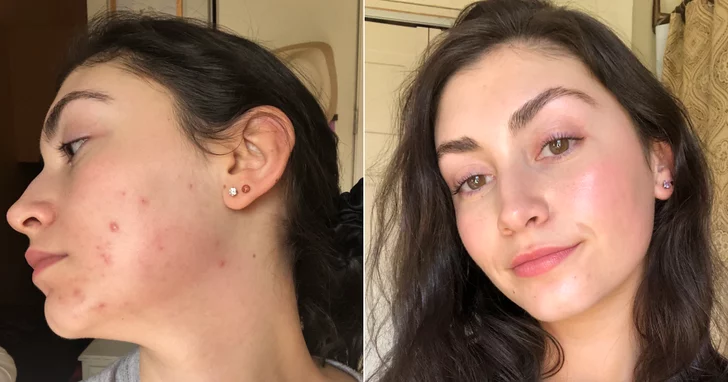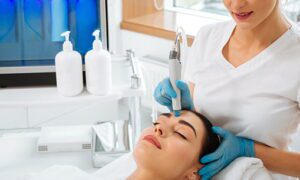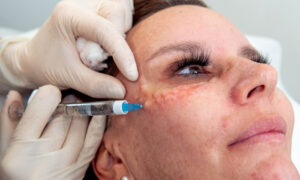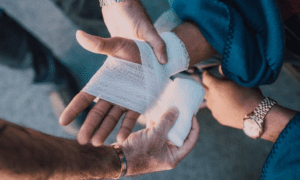In our day-to-day lives, one common yet complex skin issue many of us face is hormonal acne. Affecting both teenagers and adults alike, hormonal acne can be a significant challenge, impacting not just our physical appearance, but also our self-esteem and quality of life. This blog post delves into this often-misunderstood skin condition, exploring its causes, various treatment options, preventive strategies, and the role of hormonal skincare in managing and addressing hormonal acne effectively.
Understanding Hormonal Acne: Causes and Factors
Hormonal acne, as the name suggests, stems primarily from fluctuations in our body’s hormones. It typically manifests as cystic breakouts in areas that are especially sensitive to hormones, such as the lower face and jawline. The intricate dance of hormones within our bodies is a fundamental factor in the development of acne. Hormones like androgens can stimulate the overproduction of sebum, an oil produced by our skin’s sebaceous glands, leading to clogged pores and eventually, acne. In women, hormonal acne often flares up during menstrual cycles, pregnancy, or periods of menopause – all times of significant hormonal change.
Heredity also plays a part in acne susceptibility. Studies have shown that you’re more likely to struggle with acne if your parents did. This genetic predisposition can influence how your body responds to factors like hormone levels and bacteria, exacerbating the chances of developing acne. The influence of lifestyle on hormonal acne cannot be underestimated. A lack of sleep, stress, and poor diet are just some factors that can throw our hormones off balance and subsequently, trigger acne.
Treatment Options for Hormonal Acne
Medical Interventions
Medical treatments for hormonal acne range from topical creams to oral medications. Dermatologists often prescribe retinoids, antibiotics, or hormone-based treatments, such as oral contraceptives and anti-androgen drugs. These methods aim to reduce sebum production, fight inflammation, or address hormone imbalances.
Holistic Approaches
When it comes to a more natural approach, skincare for hormonal acne can include essential oils known for their antibacterial and anti-inflammatory properties, herbal supplements, or even acupuncture. While there is less scientific evidence supporting these methods compared to medical treatments, many individuals have reported improvement in their acne condition through these holistic means.
Prevention and Management of Hormonal Acne
Balanced Diet: The Foundation of Hormonal Skincare
A well-balanced diet is paramount in managing hormonal acne. Research suggests that certain foods, such as refined sugars and dairy products, can exacerbate acne by causing hormonal fluctuations. Consuming a diet rich in fruits, vegetables, lean proteins, and whole grains can help keep hormones in balance and skin in check.
Regular Exercise: A Key to Prevention
Regular physical activity is another essential component of hormonal acne skincare. Exercise can help regulate hormones, reduce stress levels, and improve overall skin health, thus potentially preventing acne breakouts.
Other Preventive Measures
Other preventive measures include maintaining a consistent skincare routine with gentle, non-comedogenic products, getting enough sleep, and managing stress effectively, all of which can contribute to healthier skin and fewer acne breakouts.
Addressing Misconceptions and Misinformation about Hormonal Acne
Debunking Myths
Misinformation regarding hormonal acne is prevalent, with one widespread myth suggesting that acne is caused by dirty skin. However, this is far from the truth. Acne is not a consequence of uncleanliness but is instead caused by an excess production of sebum and the build-up of dead skin cells. Understanding the true factors contributing to such condition can help dispel misconceptions and guide individuals towards effective treatment and prevention methods.
The Facts about Hormonal Acne
It is crucial to recognize that hormonal acne can impact individuals of all ages, genders, and skin types. Additionally, it is important to understand that treating hormonal acne successfully often requires a significant amount of time and consistent effort. Rapid improvements are unlikely, so it is essential to practice patience and maintain consistency with the recommended treatment plans. By adhering to these principles, individuals can increase their chances of seeing gradual progress and achieving clearer, healthier skin over time.
Practical Tips for Individuals Grappling with Hormonal Acne
Effective Skincare Routines
Keeping a consistent skincare routine can significantly help manage acne. This should include cleansing, exfoliating, and moisturizing, each step tailored to your skin’s unique needs. Remember, the most expensive product isn’t necessarily the most effective one.
Importance of Stress Management
Stress can trigger hormone fluctuations, potentially leading to an acne flare-up. Techniques such as meditation, yoga, or deep breathing can help keep stress levels in check, contributing positively to your skincare for hormonal acne.
Consulting with a Healthcare Provider
If hormonal acne continues to persist or worsen, it is always advisable to seek guidance from a healthcare professional. Consulting a healthcare provider allows for personalized advice tailored to your specific medical history, lifestyle, and the severity of your acne. Their expertise and assessment can help determine the most suitable course of action, whether it involves adjustments to your skincare routine, prescription medications, or other targeted treatments for managing and improving hormonal acne.
Hormonal acne is a complex issue with multifactorial causes. Understanding the role of hormones, genetics, and lifestyle can help in effectively managing this condition. Though numerous treatment options are available, it’s essential to approach them with patience and consistency. Furthermore, preventive strategies such as a balanced diet, regular exercise, and effective skincare routines can minimize the onset or recurrence of hormonal acne. It’s always a good idea to consult with a healthcare provider for personalized advice. Let’s remember, the journey to clear skin is not a sprint but a marathon. Stay patient, consistent, and positive!



































